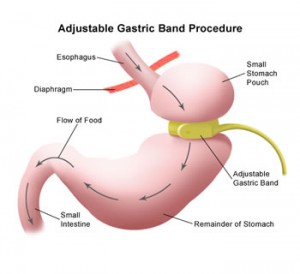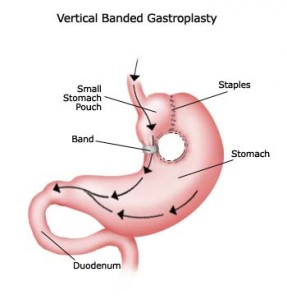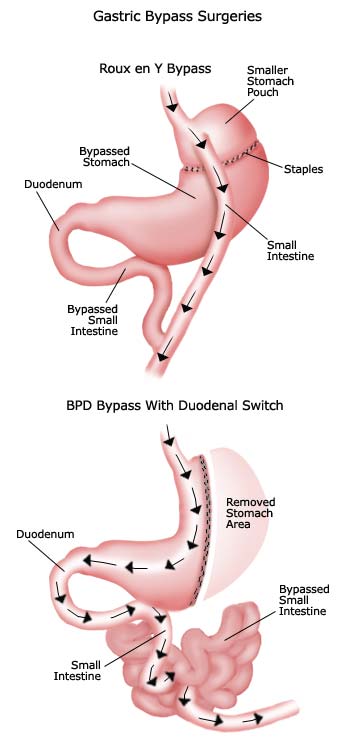-
Understanding Surgical Weight Loss
Wednesday, March 26th, 2025by Dr. Carson Liu, Bariatric Surgeon
Obesity is on an epidemic level with over two-thirds of the population overweight or obese. A lot of people go on to become morbidly obese, meaning they develop morbidities or illnesses such as diabetes, high blood pressure, knee problems, back problems, obstructive sleep apnea, urinary problems, infertility or higher incidence of cancers.
Surgical intervention for weight loss is a viable choice for patients who have already given a concerted effort at weight loss by natural means. By that I mean a good weight loss program that teaches the different types of nutritional calories and the importance of exercise!
Surgical weight loss will only be an aid to the two most important factors: What you eat and how much you exercise. Surgical interventions will reduce the volume of food, but if bad eating habits, snacking and lack of exercise creep back in, so will the weight.
All surgical interventions will induce weight loss. Ultimately, a person’s willingness to change their lifestyle habits involving the types of food they eat and the amount of exercise they do will determine the amount of weight kept off in the long term.
Surgical Weight Loss Procedures
Weight loss procedures can be categorized as restrictive (amount of food is limited) or malabsorptive (amount of intestine is bypassed). Malabsorptive procedures for weight loss require the person to take lifelong supplements.
The LAP-BAND Device
 The safest weight loss procedure that is completely reversible is the LAP-BAND device. It is an adjustable balloon on the inside of the band that allows the person to adjust the amount of restriction.
The safest weight loss procedure that is completely reversible is the LAP-BAND device. It is an adjustable balloon on the inside of the band that allows the person to adjust the amount of restriction. The LAP-BAND is an example of a purely restrictive device that limits the amount of food consumed. For many patients, they feel full faster while other patients feel restriction after eating a certain amount of food.
Vertical Banded Gastroplasty
 An old-fashioned, purely restrictive procedure is the Vertical Banded Gastroplasty (VBG), or stomach stapling. The band restricts but it is not adjustable.
An old-fashioned, purely restrictive procedure is the Vertical Banded Gastroplasty (VBG), or stomach stapling. The band restricts but it is not adjustable.Laparoscopic Sleeve Gastrectomy
Another procedure that is restrictive is called laparoscopic sleeve gastrectomy. Approximately 60% of the stomach is removed with stapling devices that help to curb hunger and restrict the amount of food. Since the stomach is removed, this procedure is not reversible. Heartburn and vomiting can be a frequent complaint if too much food is ingested at once.
Here is a video that explains the Sleeve Gastrectomy Procedure:
Roux en Y Gastric Bypass
 The most well-known weight loss procedure is the Roux-en-Y Gastric Bypass (RYGB). This is a combination of restriction and malabsorption.
The most well-known weight loss procedure is the Roux-en-Y Gastric Bypass (RYGB). This is a combination of restriction and malabsorption. Many people have had this procedure, and most others know of someone (or have heard of someone) who has had this procedure.
A new stomach is created out of the old stomach about the size of a golf ball. The remaining stomach and beginning of the small intestine is bypassed.
In addition, a Y-shaped piece of the upper intestine is attached to this small stomach pouch. The result is that food from the stomach bypasses the initial sections of the intestine, which would normally absorb calories and nutrients after eating.
Duodenal Switch
An example of a malabsorptive procedure is the Duodenal Switch (DS). In this procedure, the majority of the small intestine is bypassed, inducing a lot of malabsorption and diarrhea if the wrong types of foods are ingested.
The Duodenal Switch is the most malabsorptive procedure and vigilance is needed to stay on top of nutritional deficits that may occur in the days and months after the surgery.
Weight Loss Surgery Risks
With any surgical intervention, there is an associated risk of bleeding or infection. There is also the possibility of adverse reactions to anesthesia.
The surgical risks rise as the patient becomes heavier and their medical illnesses are predominant.
Successful Weight Loss Surgery Candidates
People who are considering surgical intervention for weight loss should be medically and psychologically stable, have their diabetes under control, and should try to lose 10 lbs. before surgery.
The weight loss before surgery helps to reduce the anesthetic complications as well as making it technically easier for the surgeon. Remember, this is elective surgery and there should never be a rush to perform weight loss surgery.
Keep in mind that even after surgery it will still require a lot of discipline to change the way a person eats and the amount of exercise they do. It all comes down to changing one’s lifestyle by eating healthy foods that are low in carbohydrate (sugar and starch), and exercising a bit everyday!
(published April 29, 2012)
 Carson Liu, M.D., is a nationally-recognized bariatric surgeon practicing in Los Angeles, California. Dr. Liu is board certified in General Surgery and over the course of his career has performed over 3700 Bariatric Surgeries. His entire practice is dedicated to helping obese Americans lose weight and start leading a healthier lifestyle. He has positively changed the lives of many patients by helping them control their weight and manage their diabetes. For more information on bariatric surgery, visit his website: DrCarsonLiu.com.
Carson Liu, M.D., is a nationally-recognized bariatric surgeon practicing in Los Angeles, California. Dr. Liu is board certified in General Surgery and over the course of his career has performed over 3700 Bariatric Surgeries. His entire practice is dedicated to helping obese Americans lose weight and start leading a healthier lifestyle. He has positively changed the lives of many patients by helping them control their weight and manage their diabetes. For more information on bariatric surgery, visit his website: DrCarsonLiu.com.


